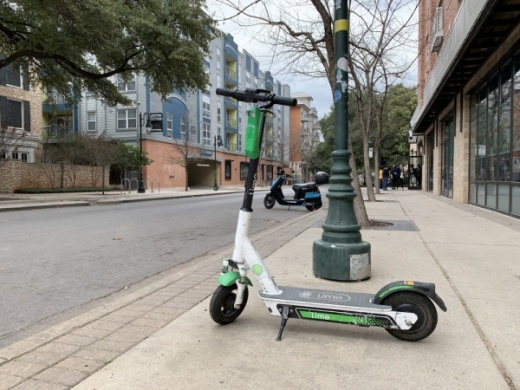Today, they are a widely used resource—there were more than 5 million electric scooter trips in the city of Austin in 2019, according to the transportation department—and new vehicles capable of longer trips are entering the market.
Jacob Culberson, mobility services division manager for the transportation department, said he expects micro-mobility operators to debut more robust vehicles that can hold a longer charge and serve a wider audience, including residents with disabilities.
In November, Revel launched in Austin with 1,000 electric mopeds. That same month, Ford Motor began mapping the city of Austin, where it will launch its autonomous commercial vehicles in 2021.
Culberson expects existing operators to follow suit.
“It’s great to see all of these companies trying to fill those holes that pop up and may exist,” he said.
Meanwhile, the transportation department will make recommendations to Austin City Council on ways to improve micro-mobility regulations early this year.
These recommendations are informed by efforts undertaken in 2019 by various city departments, including a pilot program to study scooter use on trails and parkland and an epidemiological study of scooter-related injuries conducted in partnership with the Centers for Disease Control and Prevention.
Amanda Ross, natural resources division manager for the parks and recreation department, presented the results of the pilot program the parks and recreation board Dec. 3.
“Really, what came out of it was that the speed and etiquette associated with bikes on our trails, particularly multiuse trails, was a big concern, and not just this new technology option [i.e. scooters],” Ross said.
While the pilot program results show riders continue to use scooters on prohibited parkland, such as the Ann and Roy Butler Hike and Bike Trail, Ross said the parks department hopes to wield geofencing technology to prevent scooters from operating in prohibited zones.
Geofencing is a type of speed-override technology designed to discourage illegal scooter use on parkland, according to the transportation department. In March, geofencing technology enabled scooter companies to slow their vehicles to a maximum speed of eight miles per hour on The University of Texas campus. In September, its use expanded to unpaved park trails, where scooters are prohibited.
The transportation department also recommended revising its responsible riding ordinance to allow electric scooters on some parkland trails, creating designated parking box areas and setting trail speed limits, according to Ross’ presentation.
Safety remains the transportation department’s top priority, Assistant Director Jason JonMichael said.
According to Dell Seton Medical Center, the hospital saw 109 severe scooter injuries between January and November. These numbers do not reflect less severe scooter injuries.
In February, the city's first scooter-related fatality occurred downtown on the I-35 frontage road.
However, JonMichael said safety is improving as residents grow more comfortable riding and driving alongside scooters and other dockless vehicles.
“It’s a matter of behind-the-wheel miles,” JonMichael said.




